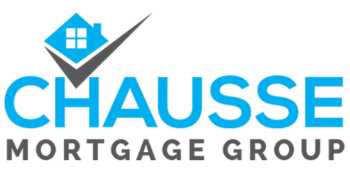
How to Get a Mortgage if You’re Self-Employed in Ontario
Choosing to buy a home can be difficult, yet in Ontario, getting a mortgage as a self-employed individual can feel complicated. Often, lenders prefer that applicants earn a dependable income from a full-time job. Having a mortgage isn’t out of reach for someone who is self-employed. All this means is that you need to plan well and learn what lenders require. This blog explains ways to smooth out the process and enhance your chances for approval.
Why Is It More Complex for the Self-Employed to Get a Mortgage?
Earning enough to prove your income is usually the biggest problem for those who work for themselves. Each month’s salary information is visible in the pay stubs and employment letter you get from your company. When you are self-employed or carry out freelance jobs, your income may not stay the same from one month to another. To determine if you will be able to pay the loan, lenders prefer your income to remain the same. As a result, they require further paperwork and examine your financial situation carefully.

Self-Employed Mortgages in Ontario
What Documents Will You Need?
In order to get a mortgage when you’re self-employed, you need to present evidence of your income that is easy to verify. Most businesses will need to provide personal and business tax returns for the last two years to lenders. Getting a Notice of Assessment from CRA helps make sure your taxes were submitted correctly.
Besides tax forms, lenders may ask for your business financial statements, including profit and loss reports. Bank statements can also help show regular deposits from your business. Sometimes, contracts or invoices from clients can support your case by showing steady work.
Tips to Strengthen Your Mortgage Application
It’s important to keep track of your finances, as it can help you get approved. Your finances can be presented clearly when you have the help of an accountant or good financial software. Lenders are most comfortable with borrowers who have steady finances.
Your credit score is another key factor. Make sure your credit is healthy by paying bills on time and clearing any outstanding debts. Also, be prepared to save a larger down payment. Self-employed borrowers often need to put down 15% to 20% of the home price instead of the typical 5% or 10%. This shows lenders you are financially stable and reduces their risk.
If you’re denied by banks, mortgage brokers and other lenders may be able to help. They are familiar with the process for the self-employed and can connect applicants with lenders that consider income in other ways.
Be Patient and Prepared
Self-employed people may have to wait a bit longer than other borrowers to get a mortgage. Your lender will examine your paperwork, and you may be asked more questions about the business. You’ll need to be able to describe your business, how much income it generates, and your upcoming goals.
Even when everything seems complicated, being organized and guided by experts can really help. Using their advice, you can choose the best mortgage and go through the process step by step.
Conclusion
Getting a mortgage on your own can prove tough in Ontario, but proper preparation makes it possible. Chausse Mortgages helps you get the documents needed and explains all the lending requirements you have to meet. Preserving good order in your business, as well as your credit history and savings, will help convince banks you are deserving of a home loan. Even if it takes longer and calls for extra effort, as long as you take your time and seek guidance, you’ll be able to purchase your home. Just because you’re self-employed doesn’t mean homeownership is out of your reach.


